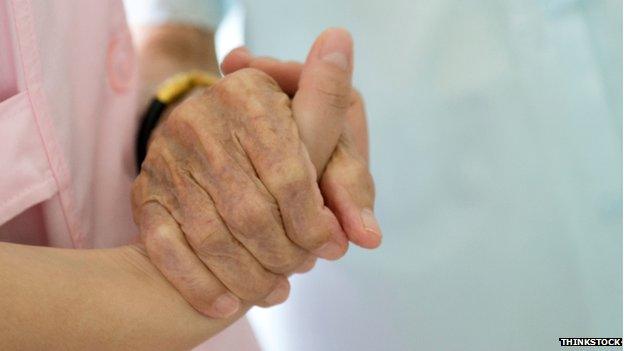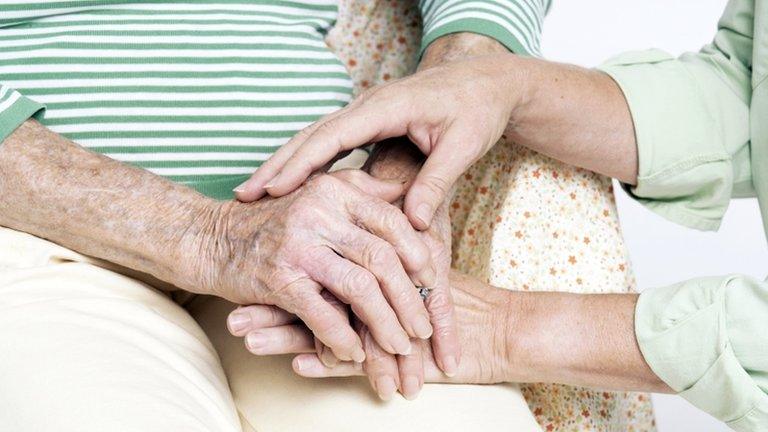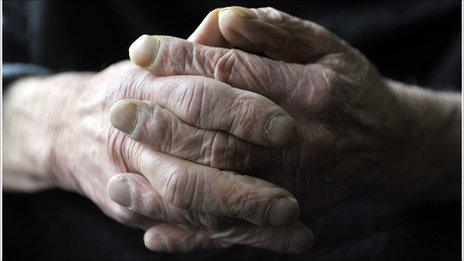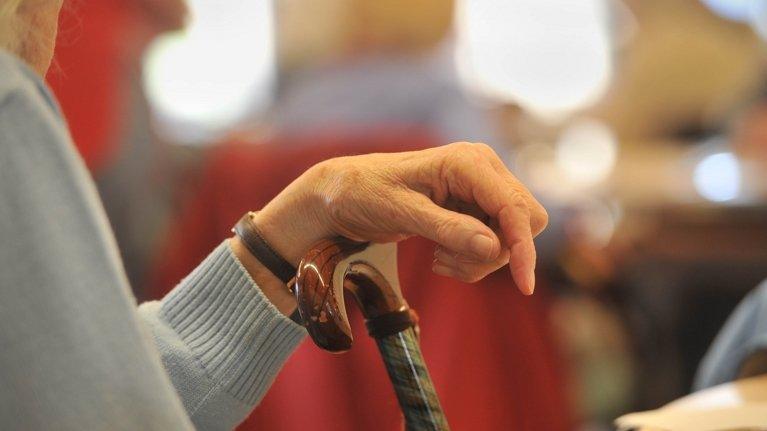Review says NHS should not pay care home charges
- Published

The review looked at the long-term care of people with severe medical conditions
A review of the long-term care of chronically ill people in Scotland has recommended that they should not have their care home costs paid by the NHS.
It means hundreds of people who need a high level of nursing care will have to pay their care home charges in future.
It follows revelations by the BBC that people in Scotland who should have been eligible for free care were being charged care home fees.
Lawyers have told the BBC that the new proposals could be illegal.
People who have certain severe medical conditions which require complex care are entitled to have that care paid by the NHS - even if it is delivered in a nursing home or in the person's own home.
This is called "NHS continuing healthcare" and is in addition to the free personal care which is available to everyone in Scotland.
However, last year the BBC revealed that the number of people getting all their care costs paid was falling in Scotland, whereas it was rising in England, in line with an ageing population.
NHS facilities
Following the BBC's investigation, Health Secretary Alex Neil promised to review the situation and urged anyone who felt they had been unfairly turned down for funding to contact him.
That review, external has now accepted that the system in Scotland is not working. It said existing guidance was "no longer appropriate", "open to interpretation" and should be completely revised.
It has recommended that no-one in a care home in future should have their care costs paid by the NHS.
It said continuing care should only be available in facilities funded and managed by the NHS - hospitals or NHS run nursing homes.
The report stated: "Only those individuals who are required to live in hospital should be exempted from charges relating to their accommodation.
"All other individuals, whatever their age or disability should contribute to the funding of accommodation costs, should their financial situation permit."
Responding to the review, Mr Neil said: "This report makes a number of recommendations for reforming continuing care and putting in place a system which will be applied consistently and transparently by all NHS boards.
"Where patients are assessed as needing this form of acute long-term care the expert group make clear that the most effective and safe way to deliver this is in a hospital setting.
"This is welcome clarification and we'll now be working with health boards and Cosla to put in place new guidance to underpin this reform of NHS continuing care.
He added: "We will now ensure it is applied fairly and equally to all patients across Scotland."
'Backwards step'
New guidance will come into force in April next year. Existing arrangements will remain in place for people who are already in receipt of continuing care.
Last year, 1,711 people were receiving the care package - three quarters of whom were in NHS facilities, with the remainder in private nursing homes.
Families of those affected told the BBC the report was "very disappointing but totally predictable"'.
Opposition parties have criticised the review's recommendations.
Scottish Labour's health spokesman Neil Findlay said: "The review will now create a two-tier system.
"Scots suffering from long-term debilitating conditions after April next year will be worse off than current patients. That simply makes no sense.
"In fact, in future, patients will be worse off than English patients in similar situations. Unless doctors rule that the patient should be in a hospital, the patient and their family will be liable for the costs."
Scottish Liberal Democrat health spokesman Jim Hume said: "This is not the outcome that anyone was expecting to the review into continuing care. This is a backwards step which goes against all that the Scottish government has said about spending to save.
"By removing continuing care costs for people receiving treatment at home for complex care, the Scottish Government is effectively chaining people to a hospital bed when they could be in the community."
- Published20 January 2014

- Published25 June 2013

- Published13 June 2013

- Published13 June 2013

- Published18 December 2012

- Published28 August 2012
